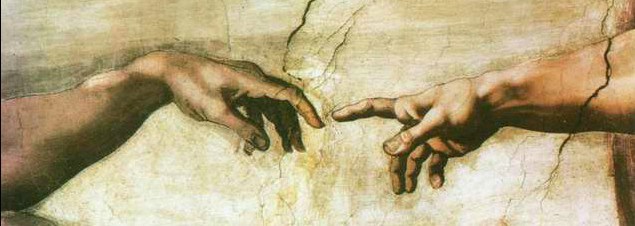Abraham Lincoln argued that the idea of natural human equality—the self-evident truth that each and every person is equally human and therefore equally entitled to his or her own body, mind, and labor—is the “father of all moral principles.” He also argued that the idea of natural human equality is the moral foundation for all politics of freedom.
Lincoln was right.
OWNERSHIP
Every moral right can be understood as a kind of property right, and every moral wrong can be understood as a form of theft. Robbery, shoplifting, embezzlement, vandalism, slander, assault, rape, slavery, and even murder, are one form or another of someone taking something that does not belong to her from another.
As a person has a right to her house, her computer, her car, her business, her reputation, her body, her ideas, so then it is wrong for someone else to come along and steal any of these things, damage them, or try to control them without the consent of the owner.
An act of stealing, however, can be committed only against a being who is actually or potentially consciously self-aware of owning something. There can be no right to own property, after all, for a being that has no actual or potential capacity for understanding what property is or that it owns any.
SELF-AWARENESS
So what kind of being possesses the awareness, and the self-awareness, to know that something is hers? What kind of being possesses the conscious, reasoning capacity to articulate a moral argument as to why it is wrong for someone else to take what rightfully belongs to her?
Answer: Only a living, conscious, reasoning, self-aware being. Only a human being.
Being consciously aware of the world around one’s self and what belongs to others and what does not, as well as being aware of one’s self, and being aware that one is aware of one’s self—self-awareness of one’s own self-awareness—is unique to human beings. And perhaps gods.
In his Nicomachean Ethics, Aristotle argued that the capacity to be self-aware of one’s own self-awareness is the highest, noblest thing in human nature, that this capacity for self-awareness is what distinguishes and elevates all human beings from all animals.
To help others get what he meant and the importance of it, Aristotle described poetically and metaphorically the capacity to be self-aware of one’s self-awareness as a “divine spark” in the human soul. Beings that possess that spark of the “divine,” he argued, are human beings, by definition.
EQUALITY AS THE FOUNDATION FOR FREEDOM
In the Bible, one finds a similar poetic formulation. According to the first chapter of Genesis:
God said, Let us make man in our image, after our likeness: and let them have dominion over the fish of the sea, and over the fowl of the air, and over the cattle, and over all the earth, and over every creeping thing that creepeth upon the earth. So God created man in his own image, in the image of God created he him; male and female created he them.
With respect to Imago Dei, Latin for “image of God,” all human beings are equal because all human beings, regardless of their infinite differences and inequalities, have within themselves the image of God.
Stated differently: If being self-aware of one’s own self-awareness is a quality that God possesses, and if human beings also are self-aware of their own self-awareness, then it is true that all human beings have the image or “spark” or some characteristic of God within them.
And therefore all human beings are equal in a morally decisive way: Each human being is aware of what he or she owns, what belongs rightfully to one’s self and what does not, and therefore each human being has an equal, rightful claim to one’s own property, which includes one’s own body, mind, and labor.
This means that it is wrong for anyone, whether they be in a position of government power or not, to come along and steal private property, damage private property, or try to control private property without the consent of the owner.
And here we begin to catch a glimpse of why the idea of natural human equality is the moral foundation for all politics of freedom as well as the father of all moral principles. Here we begin to understand why Lincoln was right.
IMAGO DEI
Is self-awareness of one’s own self-awareness a characteristic of God? One cannot know for sure without knowing God.
Is the self-awareness of one’s own self-awareness an image of the “divine” or some kind of divine “spark” within human nature? Again, one cannot know for sure without knowing God.
But we can know that human beings certainly do possess and experience the self-awareness of their own self-awareness. We can know that self-awareness of one’s own self-awareness is a metaphysical mystery and therefore it makes sense why some attribute it to God.
We can also know why this phenomenon shared by all human beings is morally decisive and why all prospects for political freedom depend on human beings viewing each other as beings of equal moral value, that the intrinsic value of the life of one human being is neither higher no lower than any other human being.
This is why, as Lincoln understood all too well, the moral argument against slavery and the moral argument against monarchy and the moral argument against tyranny in all forms is the same argument. Slavery, monarchy, and tyranny are wrong because they all are forms of theft.
And theft is wrong among beings who are equal in their natural right to self-ownership.
And freedom emerges among a people when they use the power of law to constrain and limit theft in all forms.
And any teachings that spread to new audiences the ideas of natural human equality, rightly understood, including poetry, philosophy, and Biblical revelation, are important and good and useful for human freedom, human flourishing, and human justice.

